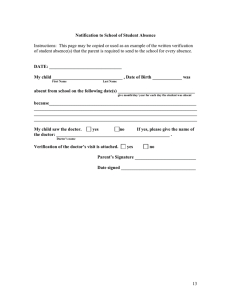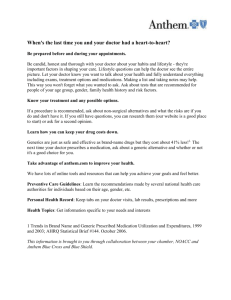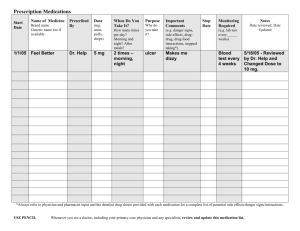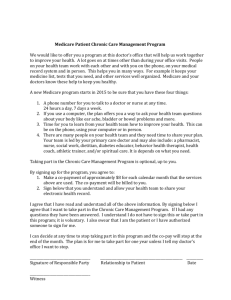1. Tell Your Story Well: Be 4. Be An Informed Consumer:
advertisement
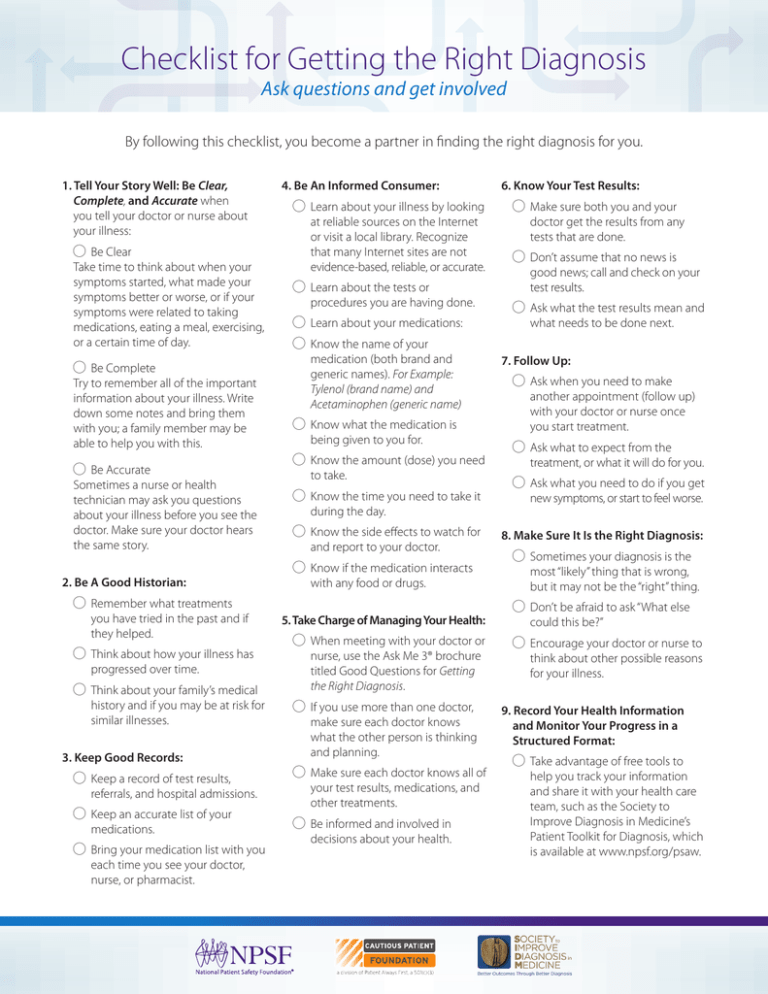
Checklist for Getting the Right Diagnosis Ask questions and get involved By following this checklist, you become a partner in finding the right diagnosis for you. 1. Tell Your Story Well: Be Clear, Complete, and Accurate when you tell your doctor or nurse about your illness: o Be Clear Take time to think about when your symptoms started, what made your symptoms better or worse, or if your symptoms were related to taking medications, eating a meal, exercising, or a certain time of day. o Be Complete Try to remember all of the important information about your illness. Write down some notes and bring them with you; a family member may be able to help you with this. o Be Accurate Sometimes a nurse or health technician may ask you questions about your illness before you see the doctor. Make sure your doctor hears the same story. 2. Be A Good Historian: o Remember what treatments you have tried in the past and if they helped. o Think about how your illness has progressed over time. o Think about your family’s medical history and if you may be at risk for similar illnesses. 3. Keep Good Records: o Keep a record of test results, referrals, and hospital admissions. o Keep an accurate list of your medications. o Bring your medication list with you each time you see your doctor, nurse, or pharmacist. 4. Be An Informed Consumer: o Learn about your illness by looking at reliable sources on the Internet or visit a local library. Recognize that many Internet sites are not evidence-based, reliable, or accurate. o Learn about the tests or procedures you are having done. o Learn about your medications: o Know the name of your medication (both brand and generic names). For Example: Tylenol (brand name) and Acetaminophen (generic name) o Know what the medication is being given to you for. o Know the amount (dose) you need to take. o Know the time you need to take it during the day. o Know the side effects to watch for and report to your doctor. o Know if the medication interacts with any food or drugs. 5. Take Charge of Managing Your Health: o When meeting with your doctor or nurse, use the Ask Me 3® brochure titled Good Questions for Getting the Right Diagnosis. o If you use more than one doctor, make sure each doctor knows what the other person is thinking and planning. o Make sure each doctor knows all of your test results, medications, and other treatments. o Be informed and involved in decisions about your health. 6. Know Your Test Results: o Make sure both you and your doctor get the results from any tests that are done. o Don’t assume that no news is good news; call and check on your test results. o Ask what the test results mean and what needs to be done next. 7. Follow Up: o Ask when you need to make another appointment (follow up) with your doctor or nurse once you start treatment. o Ask what to expect from the treatment, or what it will do for you. o Ask what you need to do if you get new symptoms, or start to feel worse. 8. Make Sure It Is the Right Diagnosis: o Sometimes your diagnosis is the most “likely” thing that is wrong, but it may not be the “right” thing. o Don’t be afraid to ask “What else could this be?” o Encourage your doctor or nurse to think about other possible reasons for your illness. 9. Record Your Health Information and Monitor Your Progress in a Structured Format: o Take advantage of free tools to help you track your information and share it with your health care team, such as the Society to Improve Diagnosis in Medicine’s Patient Toolkit for Diagnosis, which is available at www.npsf.org/psaw.
